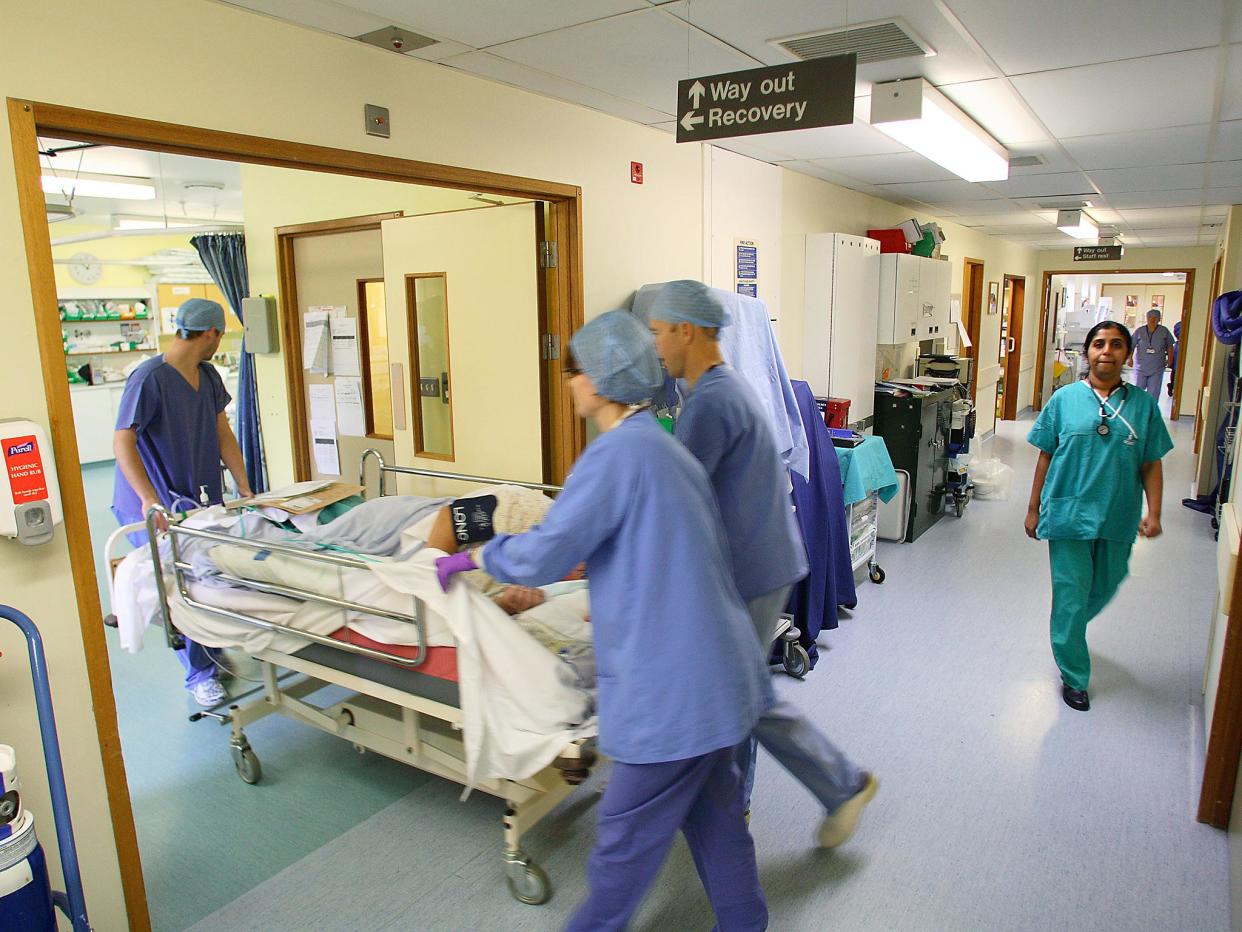No-deal Brexit could see hospitals run out of medicine, reveals leaked letter from health chief

Hospitals will be in danger of drug shortages in the event of a no-deal Brexit, NHS trusts have warned privately.
Poorly coordinated ministers and health service bosses have failed to properly prepare for the possibility of the UK crashing out of the European Union, according to a leaked letter from NHS Providers, which represents the trusts.
“Public health and disease control coordination could suffer,” said the organisation’s chief executive Chris Hopson, who warned a hard Brexit or no deal could negatively impact upon “the entire supply chain of pharmaceuticals”.
Brexit could also jeopardise the status of EU workers ”on which the NHS relies”, he added.
Mr Hopson’s letter was sent to NHS England chief executive Simon Stevens and NHS Improvement chief Ian Dalton on Friday, and copied to Brexit secretary Dominic Raab and officials at the Department for Health. It was later leaked to The Times.
The letter comes days after the British Medical Association (BMA) warned leaving the EU without a deal would leave Britain more vulnerable to outbreaks of deadly infectious diseases and increase the risk of a Europe-wide pandemic.
The possibility of a no-deal or hard Brexit “with minimal regulatory alignment appears to be growing”, warned Mr Hopson.
He wrote: “For as long as that risk remains, it is important that detailed operation planning is undertaken across the NHS. Yet trusts tell us that their work in this area is being hampered by the lack of visible and appropriate communication.
“Our members have begun planning... but they have hit a problem, in that some activities are clearly best done at a national level and, in the view of trusts, are best co-ordinated by NHS England and NHS Improvement.
“However there has been no formal communication to trusts from either of your organisations on this issue.”
Mr Hopson warned it would be more “efficient and effective” for ministers and the NHS bodies to work out a national contingency plan for trusts, rather than “expecting trusts to develop contingency plans individually, in a vacuum, and have to reinvent the wheel 229 times”.
Poor national coordination could mean “both stockpiles and shortages of medicines and medical devices”, he added.
A spokesman for NHS Providers confirmed the existence of the letter but stressed it was not leaked by his organisation.
“These conversations about Brexit are obviously something that happened between ourselves and the other organisations,” he added.
“This correspondence was private but it has been leaked and we are not saying anything further about it.”
Last month Mr Stevens said “extensive” planning was taking place to prepare for a no-deal scenario.
“There is immediate planning which the health department, with other parts of government, are undertaking around securing medicine supply and equipment under different scenarios,” he said.
“That will obviously crystallise when it’s clear later this autumn what the UK’s position will be.”
Brexit secretary Dominic Raab will head to Brussels on Tuesday for the latest round of negotiations with EU chief negotiator Michel Barnier, talks which a Downing Street spokesman said were aimed at “resolving the few remaining withdrawal issues”.
On Thursday, the government will publish the first of a series of technical notices, designed to help people and businesses prepare for a no-deal scenario.
Mr Raab will also give a speech outlining how the government plans to mitigate the potential risks of leaving the EU without a deal and ensure continuity and stability.
The issue of EU nationals’ residency will not be among more than 80 “no-deal” technical notices to be issued over the coming weeks.
Ending freedom of movement after Brexit risks the loss of 100,000 adult social care workers by 2026, the think tank Global Future has warned. About 220,000 social care staff in England – 17 per cent of the workforce – are from overseas.
An NHS spokeswoman said: “Ensuring the NHS is prepared for every potential outcome of Brexit is a priority.
“Government leads on contingency planning for different scenarios and we are working with them on this and ensuring NHS voices are heard.
“We will be working with our colleagues and partners across the NHS to ensure plans are well progressed, and we will provide the NHS with the support it needs.”
Conservative MP Sarah Wollaston, chair of the Health and Social Care Committee, urged the government to ”publish its contingency planning for Brexit”.
She added: “As the prospect of a no-deal and no-transition hard Brexit becomes more likely, it is more urgent than ever that all NHS organisations, patients and carers can see the full consequences and costs of hard Brexit and begin to make preparations.”
Mr Hopson’s letter emerged as staunch Leave supporters announced they had set up a new alliance of 10 groups, the Brexit Advance Coalition, to push for the hardest Brexit.
The Bow Group, British Friends of Trump and Get Britain Out are among the the organisations involved in the group.
Bow Group chairman Ben Harris-Quinney said his message to Theresa May was clear: “Your Chequers policy needs to change, or the government needs to change.
“We may differ on some issues, but we are all united under our three founding principles that we feel are crucial to seeing a full Brexit achieved.”
Additional reporting by Press Association

 Yahoo News
Yahoo News 
